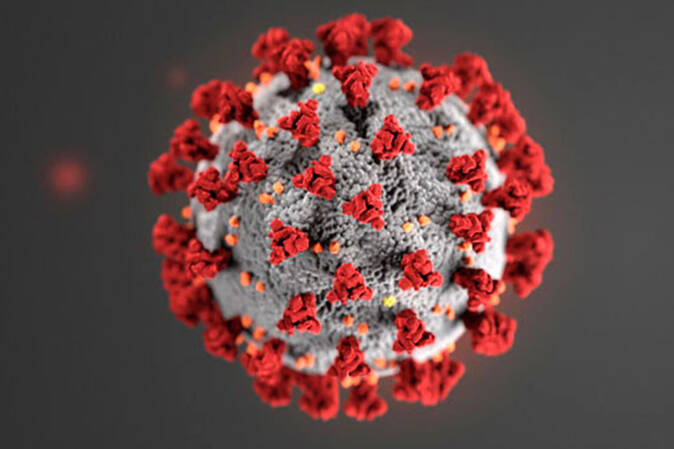The state Department of Health and Social Services on Wednesday reported a total of 1,479 new COVID-19 cases for the period of April 20-26, a 4% decrease from the week prior.
During a public health session with the DHSS on Wednesday, State Epidemiologist Joe McLaughlin said cases are starting to fluctuate nationwide.
“What we’re starting to see is a little bit of an increase in the U.S. now,” he said. “Over the last few weeks we’ve just seen sort of an incremental increase. It’s not huge, but it’s definitely going up.”
The highly contagious omicron variant of COVID is causing practically all new cases in the country, McLaughlin said. And a few of its sub lineages — BA1.1, BA2, BA2.12.1 — are circulating more widely.
“One of the things that we’re nothing with this … is that BA2.12.1 is circulating most frequently,” McLaughlin said, especially on the East Coast. There had been no BA2.12.1 sequenced in Alaska by Wednesday afternoon, he said.
The state also reported a total of 32 COVID-related hospitalizations in Alaska, up from 20 a week prior. There were also four new COVID deaths reported Wednesday.
Officials recommend all eligible Alaskans be up to date on their COVID vaccines to minimize the impact on communities.
As of Wednesday, 64.8% of Alaskans 5 and older were considered fully vaccinated against the virus, according to the DHSS. In the Kenai Peninsula Borough, that average was at 50.2%.
Booster shots are recommended, whether or not a person has already contracted the virus and despite elapsed time since the completion of the primary series.
The Pfizer-BioNTech vaccine is approved for everyone 5 years and older, while the Moderna and Johnson & Johnson/Janssen vaccines are approved for anyone 18 and older.
The Food and Drug Administration and Centers for Disease Control and Prevention are recommending Pfizer boosters for anyone 12 and older at least five months after the primary series. Additionally, Moderna boosters are recommended for anyone 18 and older at least six months after a primary series.
Janssen boosters are approved for anyone 18 and older at least two months after initial vaccination, although DHSS officials say the Janssen shot isn’t the preferred vaccine because of risks of blood clotting and less robust protection against COVID. The state recommends people with a primary Janssen vaccine to get either a Pfizer or Moderna booster.
The CDC also updated its COVID booster information last month, and authorized additional doses for certain groups.
For those 50 years and older who are up to date with their primary series and first booster, another dose of either Pfizer or Moderna is authorized four months after the initial booster dose. In this category, a person with three vaccines of any combination of Pfizer or Moderna is now eligible for a fourth dose, and those with a single Janssen shot and booster can now receive a third dose of either Pfizer or Moderna.
In addition, certain immunocompromised individuals can also receive another Pfizer or Moderna shot four months after their last booster. This would include three shots for a primary series and two additional booster doses.
A map of vaccine providers can be found on DHSS’ COVID-19 vaccine website at covidvax.alaska.gov.
Reach reporter Camille Botello at camille.botello@peninsulaclarion.com.

